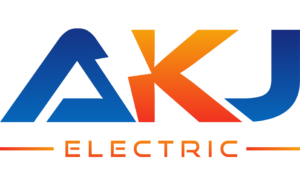Control Panels: Centralized Management for Industrial Automation
Control Panels are essential components in industrial automation systems. They provide a centralized interface to monitor and manage electrical and mechanical systems, ensuring seamless operation and control.
What Are Control Panels?
Control Panels are devices used to control and monitor various systems within an industrial setting. They house control elements like switches, indicators, and programmable logic controllers (PLCs). These panels streamline the operation of machinery and processes, making them crucial for efficient industrial operations.
Key Features of Control Panels
1. Centralized Control
Control Panels offer a single point of control for managing multiple systems. They consolidate various control functions into one accessible interface.
2. Versatile Components
Control Panels house a variety of components, including switches, relays, indicators, and PLCs. This versatility allows for comprehensive management of electrical and mechanical systems.
3. Customizable Design
Control Panels can be customized to meet specific operational needs. Users can select and arrange components based on their requirements and preferences.
4. Advanced Monitoring
Equipped with monitoring capabilities, Control Panels provide real-time data on system performance. This information helps in diagnosing issues and optimizing operations.
5. Safety Features
These panels include safety mechanisms such as emergency stops, alarms, and circuit protection. These features enhance the safety of both operators and equipment.
Benefits of Control Panels
1. Improved Efficiency
Control Panels streamline the management of industrial systems, improving overall efficiency. They enable precise control and monitoring, reducing downtime and optimizing performance.
2. Enhanced Reliability
By providing a centralized control point, Control Panels enhance the reliability of industrial operations. They ensure consistent performance and reduce the risk of system failures.
3. Customizable Solutions
The ability to customize Control Panels allows for tailored solutions. Users can design panels that fit specific operational requirements and adapt to changing needs.
4. Real-Time Monitoring
Advanced monitoring features provide real-time insights into system performance. This capability aids in timely maintenance and troubleshooting.
5. Increased Safety
Safety features integrated into Control Panels protect operators and equipment. They help prevent accidents and ensure safe operation of industrial systems.
Applications of Control Panels
1. Manufacturing
In manufacturing, Control Panels manage and control machinery, production lines, and automated systems. They ensure smooth and efficient operation of industrial processes.
2. Utilities
Control Panels are used in utilities to monitor and control water treatment, electrical distribution, and other essential services. They help manage complex utility systems effectively.
3. HVAC Systems
For heating, ventilation, and air conditioning (HVAC) systems, Control Panels provide centralized control and monitoring. They ensure optimal performance and energy efficiency.
4. Transportation
In transportation systems, Control Panels manage traffic signals, train control systems, and airport operations. They ensure the reliable operation of transportation infrastructure.
5. Building Automation
Control Panels are integral to building automation systems. They control lighting, security, and other building functions, enhancing operational efficiency and comfort.
How Control Panels Work
- Centralized Interface: Control Panels consolidate various control functions into one interface. Users can manage and monitor multiple systems from a single location.
- Component Integration: The panel houses components like switches, relays, and PLCs. These elements work together to control and manage industrial systems.
- Monitoring: Equipped with monitoring tools, Control Panels provide real-time data on system performance. Users can track operations and detect issues promptly.
- Customization: Users can customize Control Panels to fit their specific needs. This flexibility allows for tailored solutions and easy adaptation to changes.
- Safety Mechanisms: Integrated safety features protect operators and equipment. Emergency stops, alarms, and circuit protection enhance overall safety.
Choosing the Right Control Panel
When selecting a Control Panel, consider the following factors:
- System Requirements: Ensure the panel meets the specific needs of your system or process.
- Component Selection: Choose components that align with your operational requirements.
- Customization Options: Look for panels that offer customization to fit your unique needs.
- Safety Features: Verify that the panel includes necessary safety mechanisms.
- Brand and Quality: Opt for reputable brands known for reliability and durability.
Conclusion
Control Panels are vital for managing and monitoring industrial systems. They provide centralized control, advanced monitoring, and enhanced safety, making them essential for efficient industrial operations. By investing in high-quality Control Panels, you ensure the reliable and effective management of your industrial processes.
For optimal control and management of your systems, consider the benefits of Control Panels. Their versatile features and customizable design make them a valuable asset for any industrial setup. Choose the right Control Panel to enhance efficiency, reliability, and safety in your operations.

